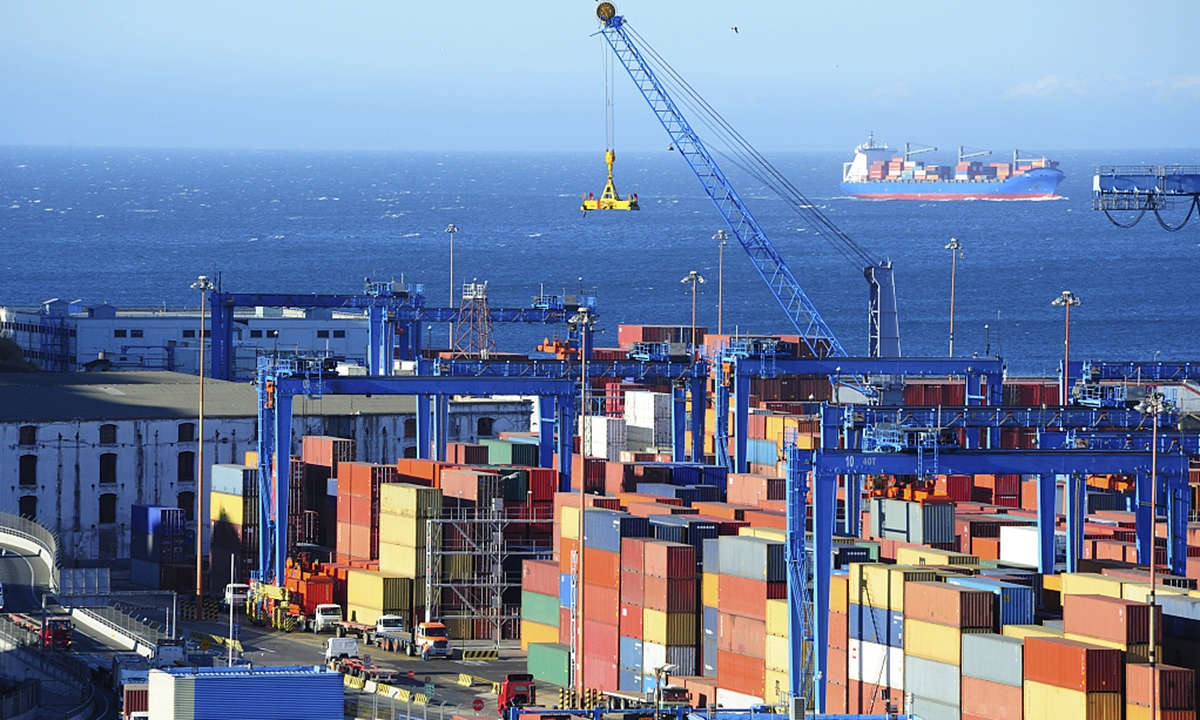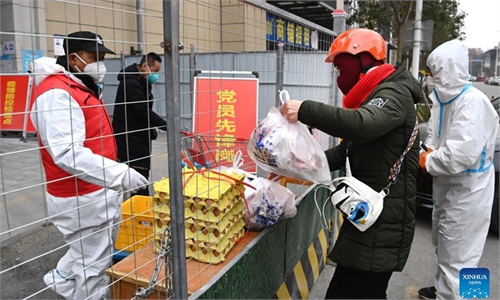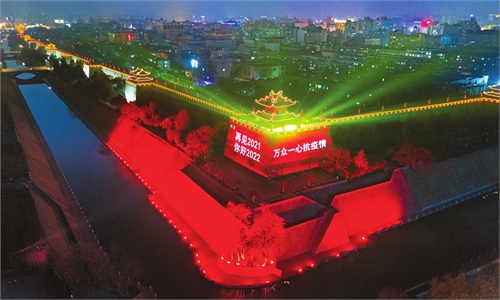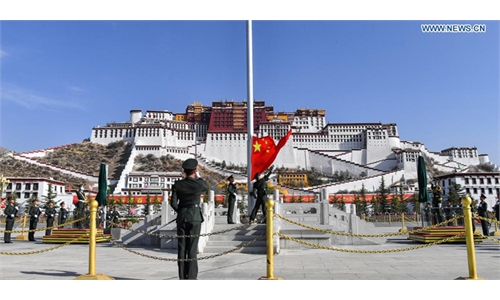
Photo: VCG
Amid new changes seen across the global and domestic pandemic situation, maintaining a zero-COVID policy while still ensuring normal economic activity is likely to be the most crucial challenge facing the Chinese economy this year.Vietnam's trade ministry has urged local authorities in South China's Guangxi Zhuang Autonomous Region to take urgent measures to ease trade congestion, the state-run Vietnam News Agency reported.
Vietnam's complaint about China's strict border controls this time highlights the mismatch of the two neighbors' COVID-19 prevention and control policies, which may have some negative impacts on the flow of trade between the two sides. But given the recent exchanges between the two countries' officials, it is believed China and Vietnam will work out a solution to address their border congestion issue.
Yet, it is concerning to note that apart from exporting fruit and other fresh produce to China, Vietnam also supplies a lot of accessories and parts and serves as an important overland route in Southeast Asia. In this sense, the congestion at the border between China and Vietnam could be seen as a microcosm of the impact of the zero-COVID policy on China's supply chain.
As more and more neighboring countries gradually abandoned their zero-COVID policy, there have been voices questioning the necessity for China to stick to its strict approach of clearing all COVID-19 cases.
There is no denying that as the new Delta and Omicron variants are highly infectious, China will have to make greater efforts to keep intact its zero-COVID policy, possibly resulting in more shocks to its supply chain. If anything, the recent outbreaks in Xi'an, capital of Northwest China's Shaanxi Province, and Ningbo, East China's Zhejiang Province, are prime examples of such supply chain disruptions. Since Xi'an is an important manufacturing base, the citywide lockdown has not only affected the industrial chain in China, but the world as well. Last week, Samsung Electronics and Micron Technology, two of the world's largest memory chip makers, warned that the lockdown in Xi'an could disrupt their chip manufacturing bases, putting further pressure on global supply chains, Reuters reported.
Moreover, with a new chain of locally transmitted cases identified in Ningbo, many fear that the Port of Ningbo-Zhoushan, one of the world's busiest cargo hubs, could be affected by the following epidemic prevention and control measures.
But new daily records of confirmed cases in some Western countries are vivid proof that it is far from the time for China to leave zero-COVID policy behind. Last week, the US, France, and Australia all reported they had broken their own records for new daily COVID-19 cases amid an Omicron variant surge.
China's unique situation with a huge population, urban-rural gap, and insufficient medical resources demonstrates the rationality of its strict zero-COVID policy.
What China needs to seek is to strike a balance between clearing all cases and guaranteeing economic activity, which will be of vital importance to not only China's supply chain but also global supply chain. Therefore, instead of arguing whether China's COVID -19 prevention measures are too strict, authorities and experts are advised to prepare measures aimed at how to adapt the economy to a new chapter in the global pandemic.



